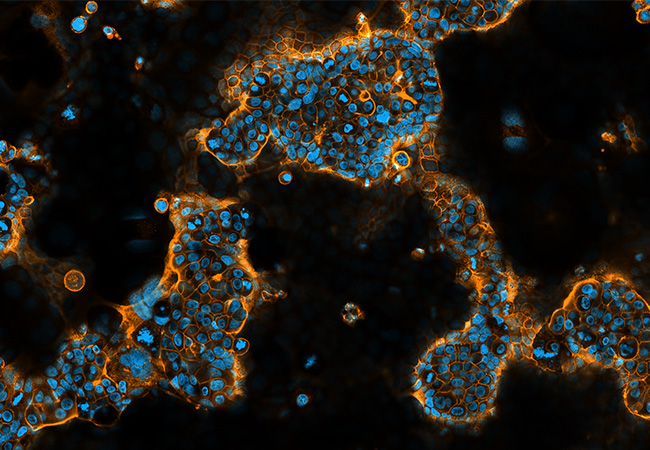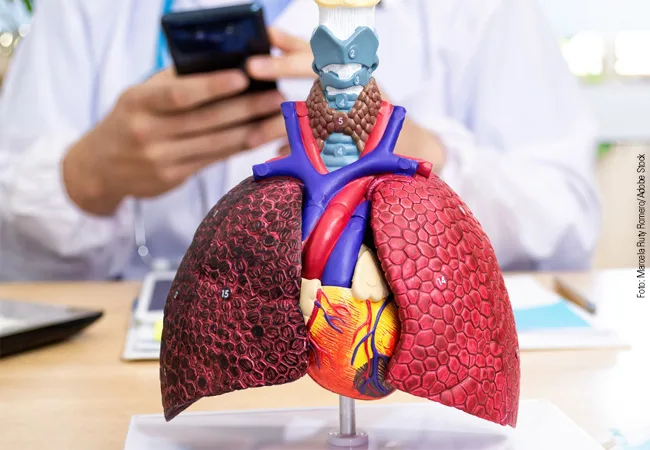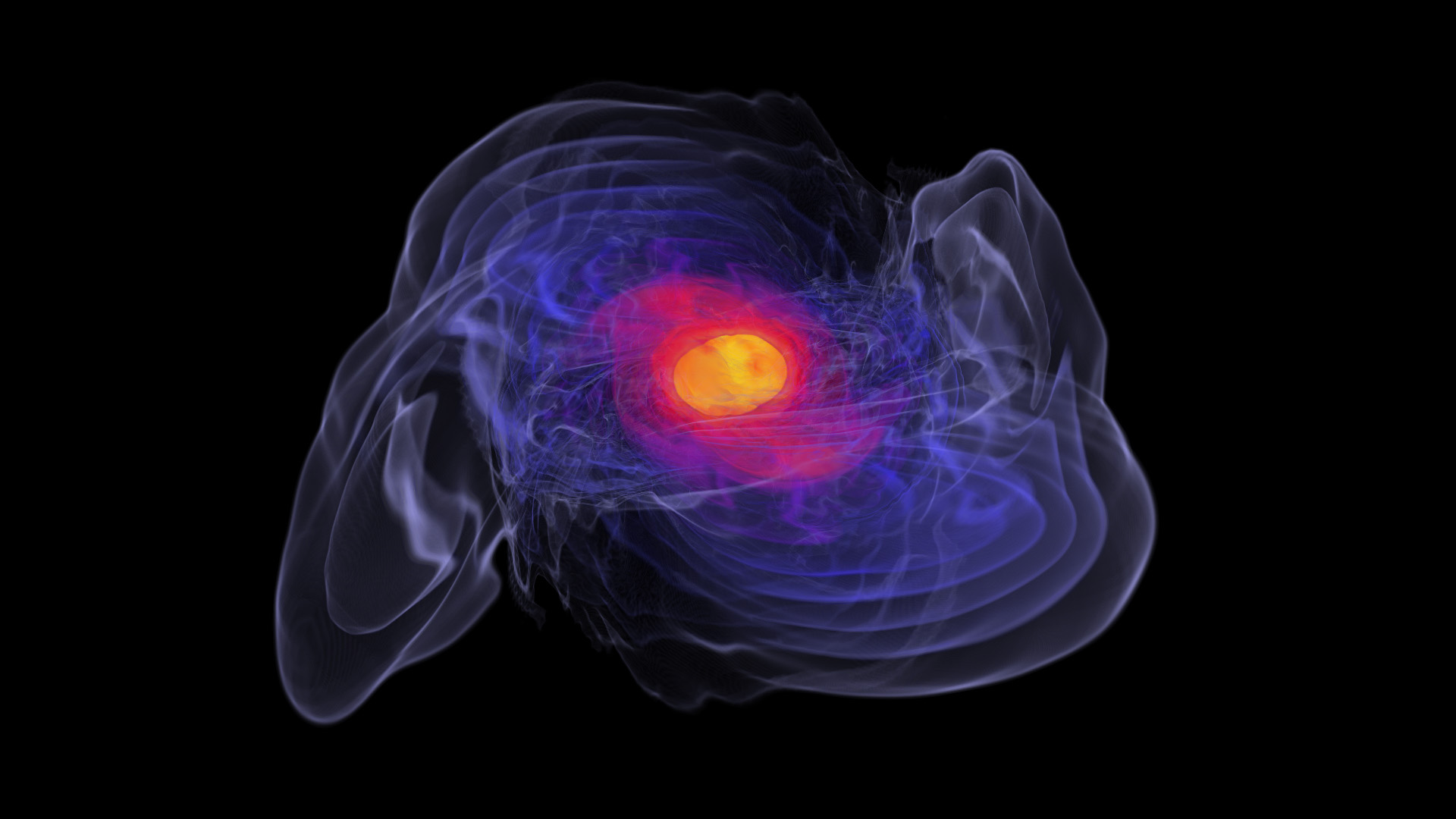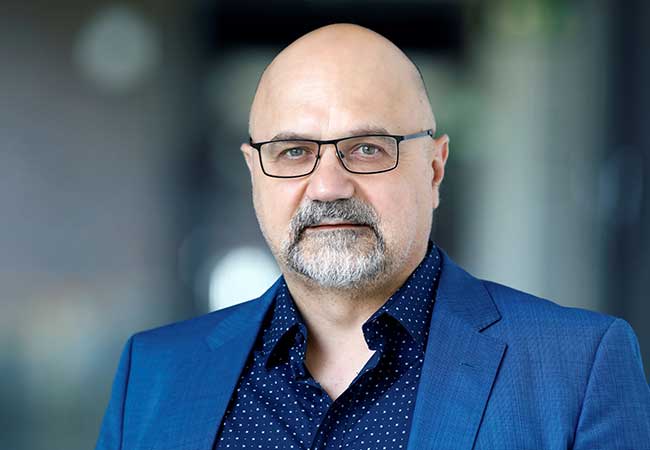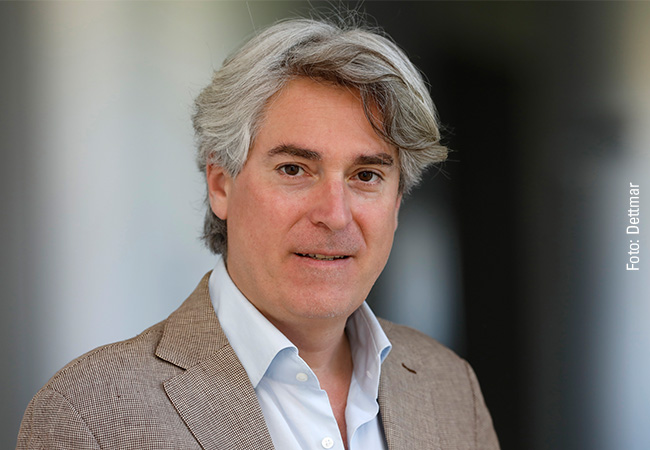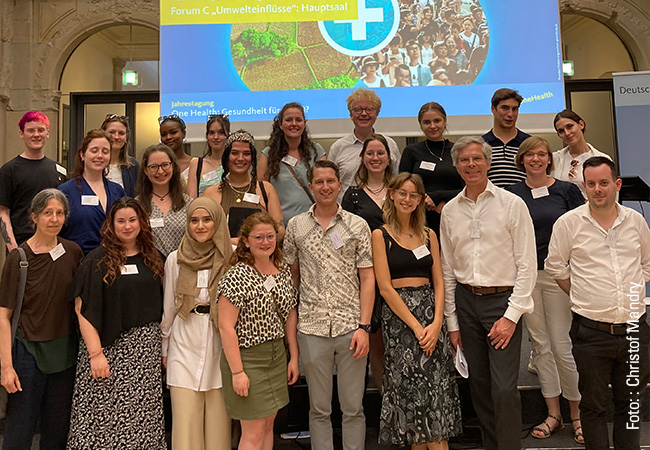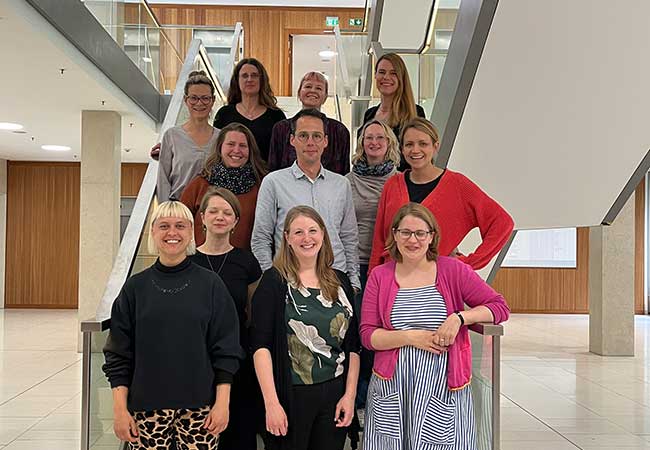Developing new therapeutic approaches for complex diseases: The EMTHERA initiative is applying to become a Cluster of Excellence.
The so-called cytokine storm was particularly feared in severe SARS-CoV-2 infections in recent years. In such cases, the immune system reacts extremely strongly to the virus, and releases unchecked cascades of messenger substances that cause massive inflammatory reactions throughout the body, resulting in the failure of the immune system’s regulatory mechanisms, and an ensuing imbalance. Our body’s communication network is enormous; it contains a huge amount of such regulatory mechanisms to ensure not only the many different functions of the body’s cells, but also their renewal. All this serves to maintain stability in the body as a whole and in the individual cells in particular. In scientific terms, this inner balance of the organism and the individual cell is known as homeostasis.
This balance is not static; after all, the human body’s environment is constantly changing, or pathogens give rise to disturbances. Accordingly, the individual cell is also in constant exchange with its environment, both by absorbing and releasing nutrients, oxygen and carbon dioxide, and by sending and receiving countless signals in the form of messenger substances.
If the cell fails to maintain its homeostasis, this has serious consequences: As such, a lack of control of cell division is a cause of cancer. Misfolded proteins that are not disposed of within the cell and instead accumulate play a central role in neurodegenerative diseases such as Alzheimer’s dementia, Parkinson’s disease and amyotrophic lateral sclerosis. A possible result of the immune system getting out of balance is autoimmune diseases with chronic inflammation or even – as in the case of SARS-CoV-2 – a life-threatening cytokine storm.
What exactly ensures homeostasis in the body?
The EMTHERA research consortium will investigate the disease mechanisms that underlie such systemic diseases at the interface of infection, inflammation and immunity. EMTHERA spokesperson Prof. Ivan Ðiki’c explains: „Our overarching goal is to understand the mechanisms that keep the body as a whole, its organs and the individual cells in balance, i.e. in homeostasis, so that metabolism and organ renewal can be managed, and external disturbances, such as those caused by infectious agents, can be compensated.“
To this end, the researchers want to find out in detail how the pathogen and the human „host“ interact with each other in the course of an infection. One focus of this EMTHERA research program is on RNA viruses, such as SARS-CoV-2, and the immune response that occurs when another virus, such as influenza, simultaneously infects the host. As such, novel antivirals to combat the infections could prove to be substances that deliver virus components to the cellular protein shredder system, which the cell naturally reserves to recycle no longer needed or defective proteins. Another focus is on investigating pathogenic bacteria, often referred to as hospital germs. Here, the scientists are developing novel therapies that will use components of so-called phages, i.e. viruses that naturally infect bacteria. Other foci will be the aging of the immune system and how this weakens the body’s resistance to pathogens; and how the interplay between gut and intestinal bacteria as well as the immune system affects resistance to invaders.
Attenuation of the chronic inflammatory process
Another EMTHERA research program is concerned with chronic inflammation that arises as a result of a local infection, and spreads to and becomes perpetuated in distant body organs. The focus here is on the liver and bone marrow, which amplify signals for inflammation and thus perpetuate an inflammation’s chronicity. From a therapeutic standpoint, the scientists want to develop strategies that specifically dampen this overactive inflammatory process in the affected tissues and organs. Here, too, communication between the intestinal bacteria and the liver plays an important role. The goal is to develop therapies that restore the homeostasis of both cells and organs.
This is also the aim of the third EMTHERA research program, which investigates the extent to which the immune system can be „reprogrammed“, so as to not only stop the spread of inflammation to the whole body, but also harness the immune system’s healing powers. After all, the immune system is capable of regenerating tissue damaged by viruses or bacteria. From a therapeutic perspective, the team is testing technologies that specifically break down disease-relevant proteins or work with RNA agents or nanoparticles.
In addition to the three research programs, the EMTHERA team is also investigating overarching issues, such as in which pharmaceutical form substances should be administered for them to take effect in the desired organ or target cell. Nanotechnology is just as much a part of this as computer-assisted biomedicine. Apart from that, a communication science project sets out to improve public acceptance of new therapies.
EMTHERA co-spokesperson Prof. Özlem Türeci is convinced: „We can only unravel the complex events in inflammation and infection with large, interdisciplinary teams: By working together, we multiply the power of science. The success of the mRNA-based COVID vaccines proves how platform technologies can be used intelligently to make the impossible possible.”
Website: https://emthera.de/
Let’s do it: Goethe University Frankfurt submits four new and one existing research cluster to the Excellence Strategy competition
Goethe University Frankfurt is applying for the upcoming round of the German federal and state governments’ Excellence Strategy with four new clusters on the research topics Confidence in Conflict (CONTRUST), Infection and Inflammation (EMTHERA), Origin of Heavy Elements (ELEMENTS), and Cellular Architectures (SCALE). The applications combine Goethe University’s competencies and forward-looking ideas with those of colleagues from the strategic alliance of Rhine-Main Universities (RMU) and other partners from the four major non-university research organizations. The Cardio-Pulmonary Institute (CPI) Cluster of Excellence, in existence since 2019, will submit a full proposal directly in 2024.
An introduction to the clusters follows below.
Heart and lung disease: Cardio-Pulmonary Institute (CPI)
Heart and lung diseases are one of the leading causes of death worldwide. The Cardio-Pulmonary Institute (CPI) is dedicated to…
Infection and inflammation: EMTHERA
Developing new therapeutic approaches for complex diseases: The EMTHERA initiative is applying to become a Cluster of Excellence. The so-called cytokine…
Cellular Architectures: SCALE
The name of the cluster initiative SCALE stands for „SubCellular Architecture of LifE“. The project is entering the German federal…
Trust in Conflict: CONTRUST
How dissonance in conflict can dissolve into trust: The ConTrust cluster project explores where such potential can be found, even…
Origin of Heavy Chemical Elements: ELEMENTS
To understand why heavy elements exist in our universe, you have to explore neutron stars, kilonovas and gravitational waves. The…
Questions for ELEMENTS spokesperson Prof. Luciano Rezzolla
UniReport: What is your goal in applying for funding as a cluster of excellence? Luciano Rezzolla: The goal shared by all…



